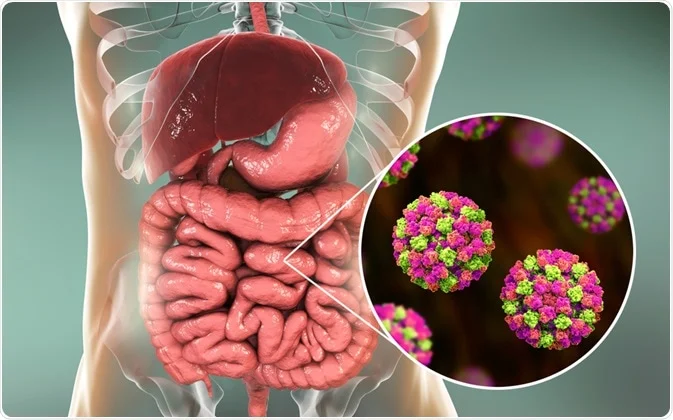Introduction
The norovirus is on the rise, with the UK Health Security Agency publishing data that shows cases are the highest they have been in 5 years.
Norovirus is a highly contagious disease that causes inflammation of the stomach and intestines, more commonly known as gastroenteritis. It is the leading cause of foodborne illness worldwide and can affect people of all ages, with outbreaks typically occurring in schools, hospitals, and cruise ships.
Symptoms
Symptoms of norovirus include:
- Feeling sick (nausea)
- Diarrhea
- Being sick (vomiting)
You may also suffer from:
- A high temperature
- A headache
- Aching arms and legs
The symptoms start suddenly within 1 to 2 days of being infected. Norovirus is the most common cause of gastroenteritis across the globe. In the UK, the virus is more popularly known as the ‘winter vomiting bug’ as cases usually peak during the winter season. However, it is important to note that the virus can occur year-round.
The virus is extremely transmissible and causes infections easily through physical contact. While the virus is most dangerous for vulnerable groups (with the UK Health Security Agency, UKHSA, reporting that most cases were found in the over-65s), this isn’t something to be alarmed by, as most people tend to make a full recovery within a few days.
Click here to find out more about STTS: https://www.nhs.uk/conditions/norovirus
Health Professionals Reports on the Virus
However, within the last couple of weeks, the UK has witnessed an unusual peak in cases. When asked to comment on which factors may be playing a part in the unseasonal rise in cases, Dr. David Allen, Associate Professor in Virology at the London School of Hygiene & Tropical Medicine (LSHTM), said:
“The recent report from UKHSA showing an unseasonal rise in norovirus activity during weeks 16 and 17 of 2024 is an interesting and important observation. There are many factors that could contribute to this out-of-season activity, which include both environmental factors as well as those related to the virus.
“In the UK, temperatures in April have been cold, meaning people were more likely to be indoors. As norovirus spreads rapidly, especially in confined spaces, this could be a contributing factor.
“Indeed, the reported rise in norovirus cases has also been seen in adults aged 65 years and over, and more outbreaks have been reported in health and social care settings, which are prone to outbreaks of norovirus as transmission can be higher.”
Additionally Health Professionals comment on the Virus
In April alone, the UK Health Security Agency (UKHSA) received a total of 1,237 lab-confirmed reports of the vomiting bug in England. This translates to cases this time of the year being a whopping 75% above levels seen pre-COVID.
Furthermore, norovirus epidemiologist for the UKHSA, Amy Douglas, commented on the increase in cases, stating:
“Norovirus levels were higher in April than we would usually see at this time of year and have been increasing. This is likely due to a combination of factors, but the colder weather we have had won’t have helped.”
Health chiefs have also supported Dr. David Allen’s claims that the increase in the number of cases is due to the recent spell of cold weather plaguing England. They have warned people infected with the virus to avoid work entirely for at least 48 hours after the symptoms end.
Treating the Virus
There isn’t a specific treatment plan to cure norovirus; however, there are steps and actions that can be taken to aid recovery.

- Stay Hydrated: Drink plenty of water and fluids to replace the fluids lost from diarrhea and vomiting and prevent dehydration. Avoid fizzy drinks and caffeine as they tend to worsen symptoms.
- Rest: Get plenty of rest so your body has the time necessary to recover. When you can eat, start with light, bland foods such as crackers, toast, rice, or bananas. Avoid alcohol, caffeine, junk, and spicy food until you feel better.
- Medicate: Take medication such as paracetamol or acetaminophen for fever, pain, and aches.
- Maintain Good Hygiene: Make a conscious effort to avoid cross-contamination. Wash your hands frequently with soap and warm water, and use bleach-based products to disinfect surfaces to prevent spreading the virus.
Conclusion
With the virus at its peak, it’s important that we do everything necessary to stay clean and hygienic.
Thank you for reading, click the link below to read our other Health Articles:




Leave a Reply
You must be logged in to post a comment.